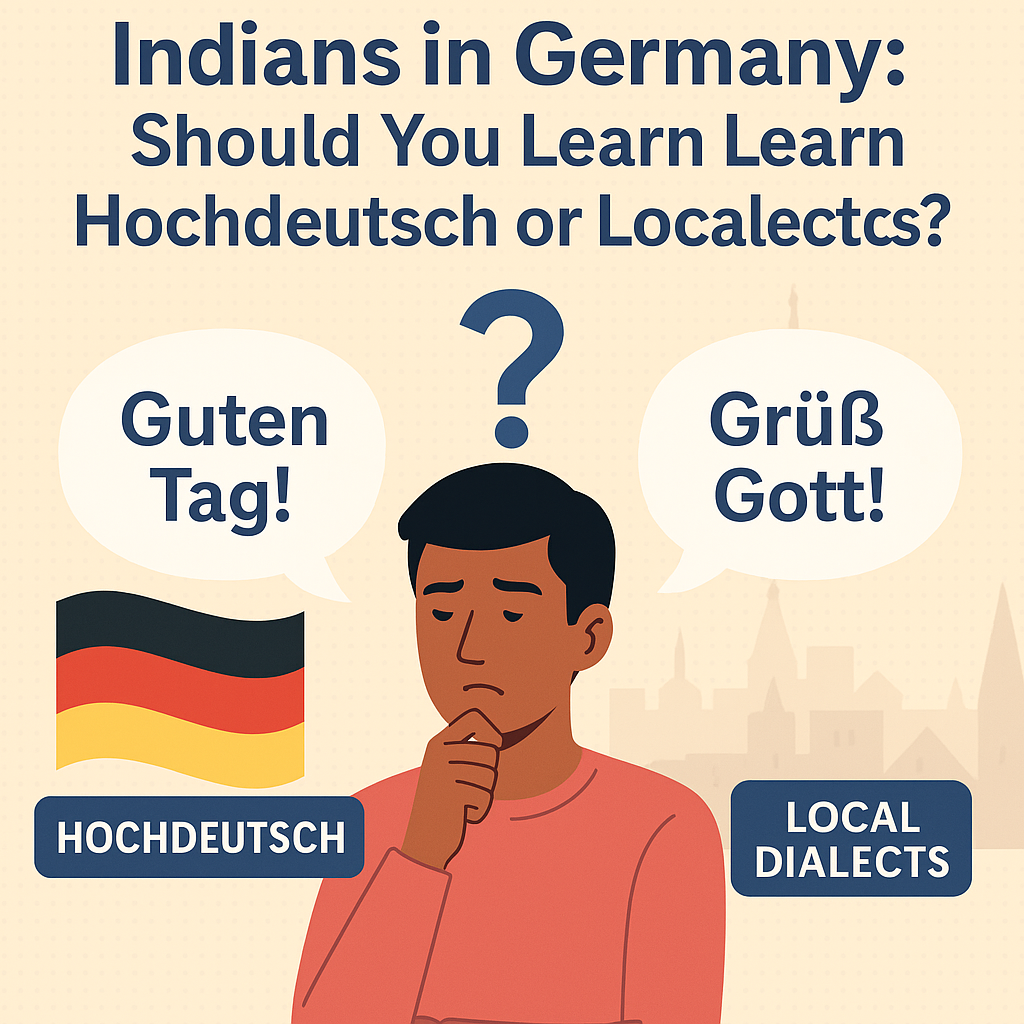Getting a Residence Permit in Germany: Student to Full-Time Employee
🇩🇪 Getting a Residence Permit in Germany: Student to Full-Time Employee
You’ve completed your studies in Germany—congratulations! But what’s next?
For many Indian students, the goal after graduation is clear: stay in Germany, get a job, and build a career. The good news? Germany makes this path relatively structured, but you still need to handle the residence permit transition correctly.
This blog will guide you through how to move from a student visa to a full-time employee residence permit in Germany—step by step.
🎓 Step 1: Finish Your Studies & Get Your Degree Certificate
Before you can apply for a new residence permit, make sure you’ve:
- Completed all course requirements
- Received your final transcripts
- Obtained your official degree certificate or completion letter from your university
📌 You’ll need this document to prove you’re eligible to work in Germany.
⏳ Step 2: Apply for an 18-Month Job-Seeking Visa (If You Don’t Have a Job Yet)
If you haven’t found a job immediately after graduation:
✅ You can apply for a job-seeker residence permit (valid for 18 months)
Requirements:
- Proof you completed your degree in Germany
- Valid passport and biometric photo
- Proof of health insurance
- Proof of funds (to support yourself during the job search – can use your blocked account or part-time income)
📍 Where to apply: Ausländerbehörde (Foreigners’ Office) in your city
💡 You can work part-time or even full-time jobs during this period while job hunting.
💼 Step 3: Got a Job? Time to Apply for a Work-Based Residence Permit
Once you have a relevant job offer, the next step is upgrading your residence status from student/job-seeker to employee.
You now have two main options:
Option A: Regular Employment Residence Permit (Section 18b)
✅ For most full-time jobs matching your degree
🧾 Requirements:
- Employment contract
- Your university degree (German or recognized foreign equivalent)
- Salary that meets the minimum wage thresholds
- Proof of health insurance
- Registration certificate (Anmeldung)
- Valid passport & biometric photo
📌 Minimum gross salary varies, but typically around €45,000–€49,000/year (as of 2025)
Option B: EU Blue Card (Blaue Karte EU)
✅ A faster and more flexible residence option for skilled professionals
🧾 Requirements:
- University degree recognized in Germany
- Job offer with a higher salary threshold:
- As of 2025, approx. €45,300/year for regular professions
- €41,000/year for shortage occupations (IT, engineering, math, medicine, etc.)
- Health insurance and Anmeldung
⭐ Perks:
- Can apply for permanent residency faster (33 months or 21 with B1 German)
- Easier to bring dependents or move across EU countries
🏛️ Step 4: Book an Appointment at Your Local Ausländerbehörde
Documents you’ll need:
- Job contract (signed)
- University degree/certificate
- CV (sometimes required)
- Proof of salary and position relevance to your degree
- Passport + visa/residence permit
- Health insurance (public or private)
- Biometric photos
- Filled residence permit application form
- Anmeldung (proof of address registration)
- Blue Card eligibility confirmation (if applying for one)
📌 Appointments can take time—book early and keep checking for cancellations.
🕓 Step 5: Wait for Approval (Processing Time)
- Processing can take 4–12 weeks, depending on your city and the backlog
- You may receive a temporary certificate (Fiktionsbescheinigung) if your current visa expires while your new one is in process
✅ Once approved, you’ll get a new plastic residence permit card valid for your job duration (usually 1–4 years)
🔄 What Happens if You Change Jobs Later?
- You must inform the Ausländerbehörde
- In some cases, you’ll need a new residence permit (especially if the job field or salary changes significantly)
- EU Blue Card holders have more flexibility after the first 12 months
🧠 Real Tips from Indian Graduates in Germany
🔹 Start job hunting early – Don’t wait until the last semester ends
🔹 Polish your CV and LinkedIn – German-style resumes matter
🔹 Improve your German – Even B1 opens up more job options
🔹 Keep copies of all documents – Including old contracts and insurance
💬 Final Thoughts
Transitioning from a student to an employee in Germany may sound overwhelming—but it’s a well-structured process. The country wants skilled graduates to stay, work, and integrate into society.
If you plan ahead, understand your visa options, and stay on top of documentation—you’ll move smoothly from classroom to career.
🎯 Bonus from AbroadSaathi.com
- Free PDF: “Student to Employee Residence Permit Checklist”
- Guide: “EU Blue Card vs Regular Permit – Which One Is Better for Indians?”
- City-wise links to Ausländerbehörde contact pages
Connect With the Indian Community living Abroad.
Comments
Latest Articles

Indian Cooking in Shared German Kitchens – Etiquette & Smell Hacks

Provincial Nominee Programs (PNPs) Explained for Indian Graduates

How to Handle Loneliness in UK Winters – Mental Health Tips for Indians

Indians in Germany: Should You Learn Hochdeutsch or Local Dialects?
